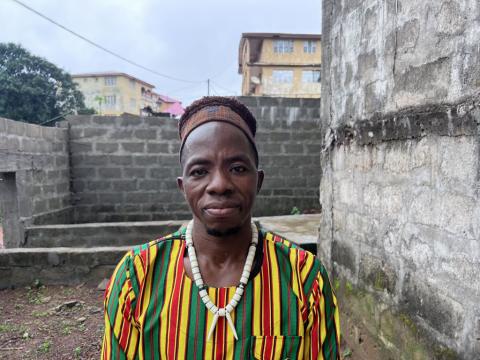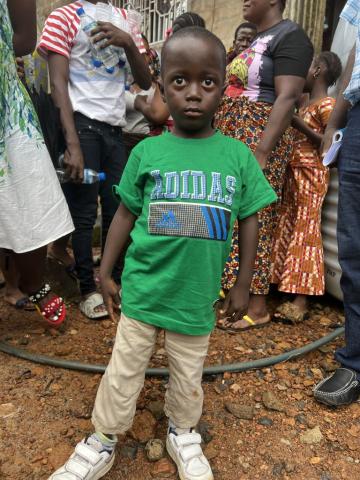By Umaru Fofana
Five years since the mudslide that left an estimated 1,200 people killed and thousands of others displaced, survivors say they have been left in the lurch ever since. They describe their present condition as bad as it was then, if not worse. “My people are in danger”, says one of their chiefs.
At a commemorative ceremony on Sunday 14 August to mark the day of the disaster in 2017 at Pengaton, one of the hardest hit areas by the 2017 disaster, survivors said their livelihood remained a miracle. They include orphans and widows.
Chief Mohamed S. Conteh said “the life of my people is becoming very difficult and dangeous”. He said the trauma that was occasioned by their experience at the time had made life particularly hard for them. “They have to go do sand mining or do vegetable gardening to be able to survive”, he said.
Conteh said housing remained a big problem, with most of the survivors having nowhere to go. “And they have children and grandchildren and they all live in appalling conditions”, he told Politico.
He called on the authorities and NGOs to help relocate them “to avoid a future disaster”.
He said no help had come since the dust settled on the disaster in 2017, with many of them including students, widows and orphans “suffering”.
Many of the survivors live in tin shacks that are dangerously perched on waterways and hilltops.
The chief said that they had worked on bylaws to establish a green belt to reforest the area with 10,000 trees having been planted in the area. But he said some of the people weren’t listening because they had nowhere to relocate to.
An octogenarian woman wept, on recalling her experience five years on. Looking emaciated and living in very appalling conditions, Mabinty Kamara and her grandchildren struggle to make ends meet. She lost her husband and her children in the mudslide.
She is not alone. The hundreds of survivors who live in the community have a similar experience. One of them is Mariama Sawanneh. Speaking to Politico, she said her husband died as he went to check on their house after the heavy downpour on that 14 August 2017 morning. “I never saw him again. The water swept him away. The house went, my husband went, my nephew whom I had brought from the provinces, all went. I was left with our four children”, she said.
Mariama said two of her children had written their middle school (BECE), the one had written the school-leaving (WASSCE) exams while the youngest one had written her primary school-leaving NPSE exams preparing to enter secondary school.
But she feared she could not help them in the circumstance as all she was doing was vegetable gardening to be able to survive living in their tin shack. She appealed for help for her and her children’s education.
Moses Thullah, a five-year-old boy who was six weeks old at the time, survived miraculously. The water drifted him away and left him floating in a neighbouring house where he was found several hours later.
Moses’ father died. He now lives with his paternal aunt who struggles to take care of him. He can barely read the English alphabet owing to the challenges of keeping him in school.
The organisers of the commemoration say they plan to continue with it as an annual event, despite having to do it all on their own this year.
Tejan Macavoray, a community organiser, told Politico that they had to do it “to show to the survivors that society has not forgotten about them”. He regretted that the central government authorities had not shown up at the event despite having invited them and made several phone calls to them.
Copyright © Politico Online (19/08/22)









